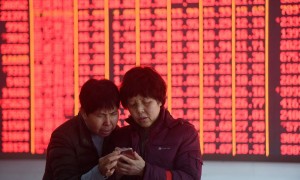New energy cars can travel anywhere in Hangzhou, at any time.
There's no limit on purchases, and plates are issued as soon as the deal is finished.
The policy is expected to benefit Chinese and international carmakers.
"We've sold 400 new energy cars from January to March. The policy is promoting the sales," said Ni Hanjian, manager of Hangzhou Hengdi Car Sales Co.
Potential buyers are also drawn to the green technology by cash handouts from the central and local governments, which could make up a maximum 60 percent of one car's price.
"Many friends also chose new energy cars and hybrid vehicles, because we don't have to wait for the plate lottery."
"I think new energy cars are good for our convenience and for the environment."
Promoting new energy vehicles is challenging. So far, most of the ones on the streets are taxis and public buses.
Prices is the barrier for most people. New energy vehicles are generally 30 percent more expensive than conventional cars. And the need for charging stations -- and the lack of -- rules out long road trips.
"We've built 3300 charging stations in public places, and we'll build another 2500 this year," said Zheng Rongxin, deputy director of Hangzhou Economic Information Committee.
The inconvenience is seen as business opportunities for companies offering car-hailing and rental services.
"Rental service is a business model that promotes the construction of charging stations and ensures they are fully used. We could get payment from offering related services," said Xu Guopeng, CEO of Yiyizuche.com.
The central government has set a target of putting five million electric cars on the road by 2020. Car makers and governments in East China have been considering setting up a network for standardized charging services. If the measures succeed, China's green road revolution may be just on the horizon.







